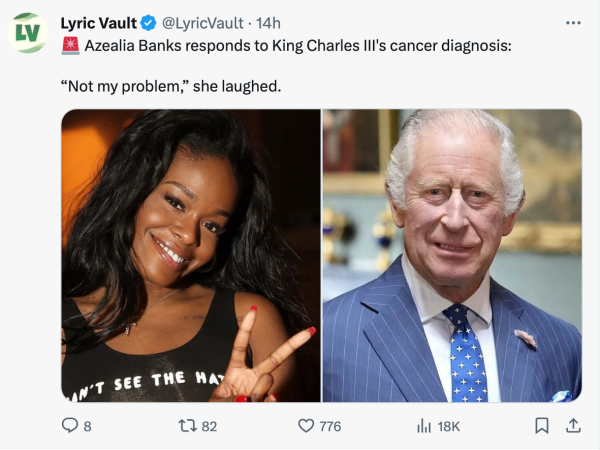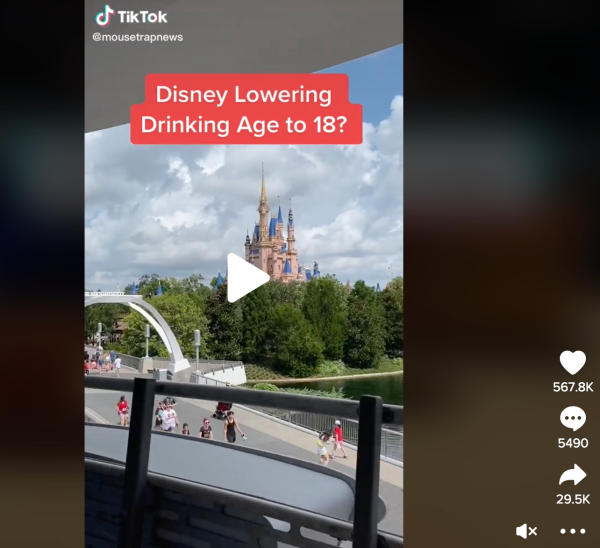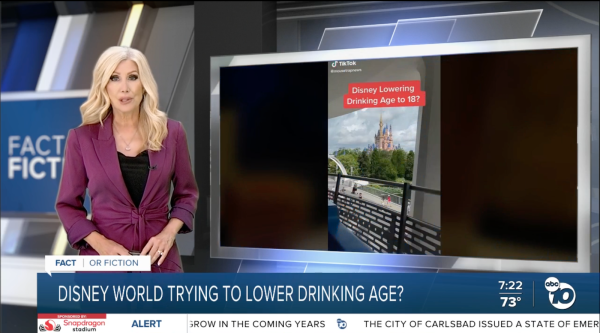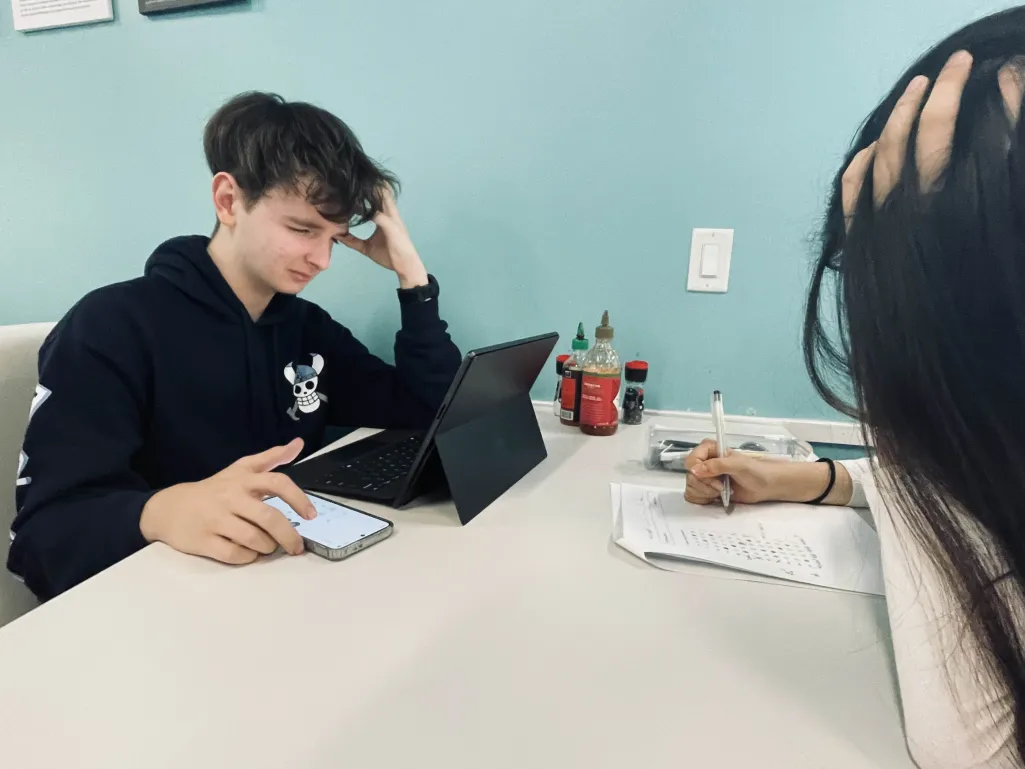The Sol De Janeiro perfume has been out since January 14, 2024. The product, with its velvet plum and sandalwood notes, has been a victim of negative reviews and hatred – rumors of the new fragrance being loved both by teenagers and arachnids, receiving a one-star review on Sephora claiming: “SCENT ATTRACTS WOLF SPIDERS. If you’re scared of wolf spiders — watch out for these lotions lol. I wanted to love them so bad, but one of the ingredients is like kryptonite to wolf spiders! When I put it on instantly one will come out,” the reviewer wrote, ending with, “Sorry for a disappointing review.” These claims are supported by studies found on Reddit stating that there are compounds found in the body cream that attract spiders, both “studies” from an untrustworthy source.
This, along with other supporting comments to the anonymous user led Sol De Janeiro to respond in a post promoting the product, stating that none of those compounds are found in their new body cream, and that although the products may “attract a lot of attention from people, they won’t from arachnids.” Arachnologists, experts and the brand itself have stated that the possibility of Sol De Janeiro’s body butter attracting such creatures is slim. This is because the specific dosage and combination of compounds necessary to attract spiders are not present in the product. “While we cannot speak to the effect these aforementioned chemicals have on arachnids, we confidently can say that these chemicals are not present in any of our products,” said the brand.
“Pheromones—chemicals released to attract a mate—are highly species-specific,” said Dr. George Uetz, a professor of biological sciences at the University of Cincinnati, told The Post regarding the phenomenon. “The internet is a great source of information, but it’s not always accurate, and someone putting a dab of body butter on a tissue and reporting in Reddit that it attracts spiders doesn’t count as research,” Uetz stated. This opens a prominent question, arising from more than just a bad review: Is what I hear actually true?
But…What even is “fake news”? Oxford defines fake news as “News that conveys or incorporates false, fabricated, or deliberately misleading information, or that is characterized as or accused of doing so.” Historically, it used to be considered propaganda put out by people in power to persuade a certain belief or support a certain position.
The phenomenon of fake news is rarely talked about and is a prominent issue, impacting the way the population and communities live and assume their reality. Social media platforms such as TikTok, Twitter, Instagram, YouTube and Facebook are known for their wide user base, creating the perfect home to create and manipulate news. According to the Pew Research Center, “In just three years, the share of U.S. adults who say they regularly get news from TikTok has more than quadrupled, from 3% in 2020 to 14% in 2023.” When it comes to getting news from untrustful platforms, Facebook outpaces all apps – three-in-ten adults say that they regularly use it to get their daily rundown. One of the most significant issues is the “Echo Chamber Effect”, in which algorithms show users content that aligns with their preferences and existing beliefs to persuade point of view.
While some examples of fake news seem innocent or just an attempt at fun or irony, many of them can be malicious and even dangerous.

As displayed, the account @LyricVault on Twitter is a prominent user, with more than 19,000 followers, @LyricVault is dedicated to satire about celebrities, targeting new events that could be twisted into a funny daily dose of humor. This account explicitly describes itself as not supported by validity or any kind of the events that are depicted in the account are real.
Recently, a TikTok video claimed that the well-known Disney World park in Orlando, Florida was going to lower the drinking age to 18. Stating that the known recreational park was battling the Florida government in court to get a resort exemption, which would allow anyone 18 and older to drink inside the property.

This TikTok video gained millions of views in just a couple of days. This story was not only big news on TikTok, it was also posted on Facebook, Instagram and Twitter and shortly it made it on ABC10 News. This video originated from an article posted on a blog called “Mouse Trap News” on August 20, 2022. The full article can be found here.

Upon further exploration of the site itself, their About page actually admits that they only write fake stories about Disney Parks. Interestingly enough, many articles on Mouse Trap News have been featured on different websites and shows, such as USA Today and The Tonight Show with Jimmy Fallon.
If we go back to the article, we can read in the description an explanation of the National Minimum Drinking Age Act passed by Congress and signed into law. The article then proceeds to question “Didn’t think you would get a history lesson from us, did you” and “Now that we have set up the act, we have some Disney news to go with it.” These playful comments already make the story suspicious, but what about their Instagram account? The account stated: “Real Disney News That is 100% fake”. So, let’s consider.
Traditional news sources report highly inaccurate or even false stories on occasion, so how do I know if what I hear is actually true? Where can I find real truth, real facts in this era of clickbait and fake news? As a community where true knowledge is valued, resources for this to be achieved are crucial. A major shift in political and cultural life in our country means it is a good time for people to improve their own reading and learning habits. Millions of people are scratching their heads, wondering what to read or where to spend their subscription dollars, so here are some reliable and unbiased (to some extent) options.
- Associated Press (AP)
The news stories are covered using neutral and unprovocative language. Their journalists report facts citing authoritative sources, making it a popular choice found in almost every list of unbiased news sources.
Another news source that’s unbiased in its reporting, there are no click-bait article titles and their journalists focus on fact-based coverage of stories giving you a well-rounded view. An amazing source for politics, business, lifestyle and technology, all things the Vikings love.
- National Public Radio (NPR)
This platform is usually featured on lists of the least biased news, however it has been accused of left-leaning political bias due to a couple of its journalists. Most of the others strongly show a central perspective and they’ll even try to correct stories and provide a better balance. It also possesses a wide range of news content like science, politics and race & culture as well as a music section.
News coverage on BBC is relatively balanced, making it one of the best options for unbiased stories. Headlines avoid favoring one side over another and the content is free from political influence. They present a broad amount of news to choose from like health, business, tech, and entertainment & arts.
The New York Times is one of the most influential news sources in the US and worldwide. While its news coverage tends to be left-leaning, NYT strives to keep the highest standard of journalistic ethics and principles. In the end, it has won 125 Pulitzer Prizes, more than any other news source.
Learning to recognize fake news stories is an ability we can all gain. Be curious and actively investigate all the content you may encounter or hear, use news sources that are accountable for their content and follow journalistic ethics and standards, be careful of sharing news content with others on social media, pause and reflect on news that may incentivize emotions and learn to recognize your own biases and compensate for them. Commitment to the search for knowledge and true understanding of the world around us is significant. So, if you are still doubting whether you should try out the new Sol De Janeiro body mist and body cream because of fear of some arachnid friends coming to visit you, let The Viking Press assure you that there is nothing to worry about.
References
LibGuides: Misinformation, Disinformation, and Propaganda: Fake news. (n.d.). https://guides.library.cornell.edu/evaluate_news/fakenews
Deb, S. (2023, December 30). Does this body butter at Sephora really attract spiders? The New York Times. https://www.nytimes.com/2023/12/29/us/sephora-spiders-body-butter.html
Sol de Janeiro. (n.d.). Cheirosa 59 Delícia DrenchTM Perfume mist. Sol De Janeiro. https://soldejaneiro.com/products/cheirosa-59-perfume-mist
Kato, B. (2023, December 28). Does this body butter attract spiders? Experts address viral claims. New York Post. https://nypost.com/2023/12/28/lifestyle/does-sol-de-janeiro-body-butter-attract-spiders-exSocial media and news Fact Sheet | Pew Research Center. (2023, November 15). Pew Research Center’s Journalism Project. https://www.pewresearch.org/journalism/fact-sheet/social-media-and-news-fact-sheet/
parts-weigh-in/
LibGuides: Misinformation & Fake News: Case Studies & Examples. (n.d.). https://libguides.lib.cwu.edu/c.php?g=625394&p=4391900
Library Guides: News: Fake News, Misinformation & Disinformation. (n.d.). https://guides.lib.uw.edu/bothell/news/misinfo
LibGuides: Fake News and Alternative Facts: Finding Accurate News: Why is Fake News Harmful? (n.d.). https://researchguides.austincc.edu/c.php?g=612891&p=4258046
The danger of fake news in inflaming or suppressing social conflict. (n.d.). Center for Information Technology and Society – UC Santa Barbara. https://cits.ucsb.edu/fake-news/danger-social








